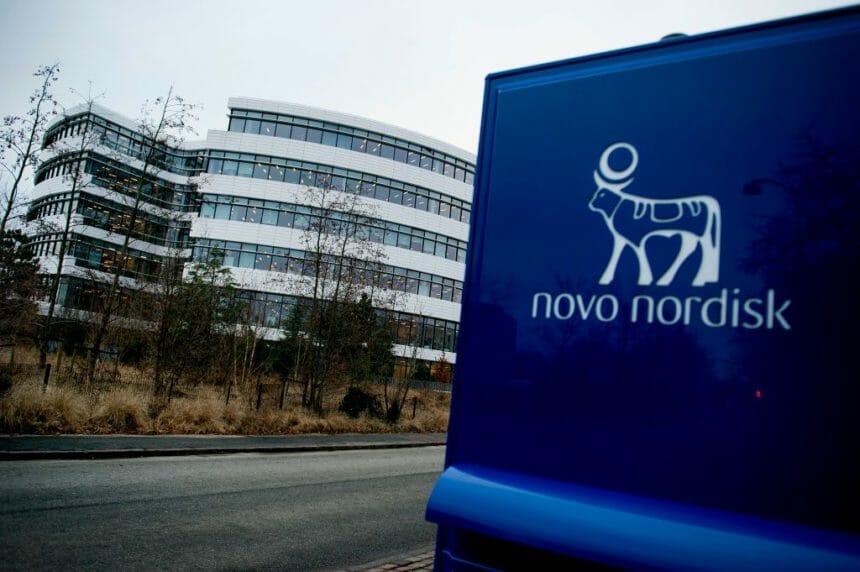Two weeks after Eli Lilly announced it would cap insulin costs at $35 per month, Novo Nordisk followed suit, declaring Tuesday that it will cut the price of some of its insulin products by 75%.
The pharma giant said it would decrease its NovoLog insulin list price by 75%, as well as its Novolin and Levemir insulin by 65%, starting in January 2024. Novo Nordisk is considered to be one of the biggest insulin makers globally, along with Lilly and Sanofi, with the three companies controlling more than 90% of the insulin market worldwide.
Novo’s move follows Lilly’s decision to institute an insulin cost cap and reduce the price of Humalog by 70%. The announcement set off ripple effects for other big pharma players to consider lowering their insulin prices as well.
“We have been working to develop a sustainable path forward that balances patient affordability, market dynamics and evolving policy changes,” Steve Albers, SVP of market access and public affairs at Novo Nordisk, said in a statement. “Novo Nordisk remains committed to ensuring patients living with diabetes can afford our insulins, a responsibility we take seriously.”
Following the price reductions, the company’s list price for NovoLog vials will be around $72 for the vial (a drop from $558) and $140 for the FlexPen (a decrease from $289) starting in January 2024. Levemir will be listed between $100 and $161, and Novolin will range from $48 to $92.
While many may point to Lilly’s announcement serving as a catalyst for other insulin makers, a Novo spokesperson told CNBC that the move was in “development for many months, but due to increased stakeholder interest, we accelerated to announce it now.”
Drug prices have long been a part of the national discussion — with both lawmakers and the public calling on pharma giants to lower prescription drug costs, especially insulin.
Last year, the Inflation Reduction Act gave Medicare the ability to negotiate the costs of certain drugs starting in 2026, and capped out-of-pocket costs for prescription drugs at $2,000 for Medicare beneficiaries. That legislation was able to cap monthly insulin costs at $35 for Medicare beneficiaries, but that did not extend to people on private insurance.
Since then, lawmakers on both sides of the aisle — including President Joe Biden and Sen. Bernie Sanders (I-Vt.), who heads the Senate Health, Education, Labor and Pensions (HELP) Committee — have considered crafting additional drug pricing legislation.
“Drug companies are making huge profits while people split their life-saving pills in half, because they can’t afford them,” Sanders said in a 2023 New Year’s video address, in which he outlined his plans as the HELP leader.
While many have applauded these drugmakers for lowering the cost of insulin, there are business considerations that play into these moves as well.
Novo’s cost caps are a sign of price competition from unbranded products, public pressure — as well as the company’s attempt to avoid paying rebates to Medicaid, Larry Levitt, EVP of health policy at Kaiser Family Foundation, noted on Twitter.
Additionally, POLITICO reported last week that Lilly’s move to cut insulin would save it millions of dollars, as it will no longer have to pay rebates to Medicaid for raising the price of drugs faster than the rate of inflation.







